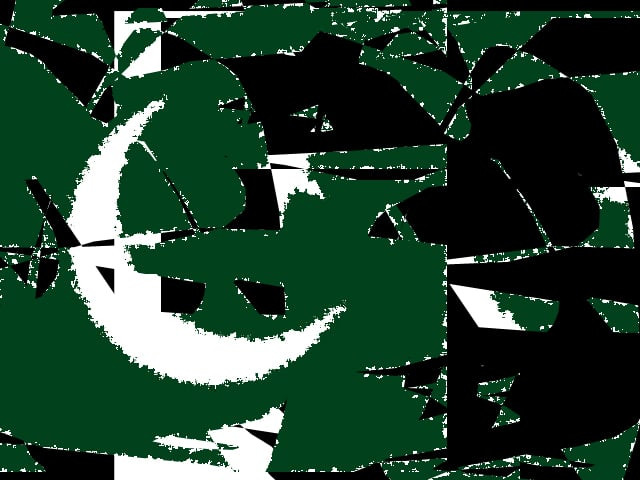The same exotic sampling of populations is present in schools, which gives children a wonderful opportunity to not only mingle or learn about various cultures but also to accept their differences and forge friendships out of their own communities at a very young age.
It was a special day for the children of a small elementary school in Edmonton. They had been preparing for the event for quite some time and now it was time to appreciate their efforts and hard work. The event was a Cultural Festival organised by the local school to celebrate its multicultural and diverse community.
The students made the decorations for the festival themselves. As a part of their Social Studies curriculum, teachers had been discussing their native countries, religion and languages. Thus, they encouraged their students to communicate in their native language at home rather than in English. The participants were asked to attend the event dressed in their traditional clothes and bring along their native cuisine to be sampled by others.
Considering there are limited opportunities for him to showcase his native clothes in front of his school friends, my son was quite animated that day as he carefully chose a white kurta, a black vest and a matching cap that was embroidered with gold threads and embellished with small mirrors.
The school grounds were adorned with giant marquees with each continent having its own booth manned by volunteer parents and students and decked up with student made garlands, flags and streamers. The Asian marquee had a Nepalese, Indian and Pakistan booth. We headed for the Pakistani booth and greeted our fellow countrymen with delight. Young boys were smartly dressed in kurtas, ladies in vibrant hues; everyone was flaunting our culture and it made me rather nostalgic about my life earlier when I lived in Pakistan. The aroma of chicken biryani wafted through the booth. Curious visitors kept coming to sample the delicacies; the biryani proved to be a hit and had vanished in no time.
Amidst tending to the crowds of samplers, we exchanged pleasantries with one another and started conversations by asking,
“Ap log kahan sa hain?”
Where are you all from?
It was here that my child got his first lesson in ethnicity, and he was informed that, for Pakistanis, when making a choice between nationalism and ethnicity, nationalism is always secondary. No matter which part of the world you’re living in, you will always be judged based on the genealogy of your family tree rather than being just a plain old Pakistani. Beginning with your province and ending at your caste, with your sect and family in the middle, everything will be carefully inspected by your fellow men.
She asked my son what he was wearing and he was perplexed – perhaps by the absurdity of the question. Surely this beautiful lady in a blingy shalwar kameez, flowing dupatta and clanky bangles looked every bit like she belonged to the same native land. Then, why was she asking him what he was wearing? Doesn’t she already know? Or maybe she was just trying to start a conversation with him.
He replied, “It’s a kurta shalwar.”
“Yeah, but what are you dressed up as?” She probed again.
Again confusion clouded his small face, “um, I’m from Pakistan.”
It was time for an intervention. I stepped forward to ask what the problem was and if I could help.
The lady turned to me and asked,
“What is he dressed up as?”
“What do you mean?” I asked.
She clarified,
“My son is dressed in our province’s traditional clothes, and those kids over there are in another province’s folk clothes; what is your son wearing?”
Glancing at my son, I forced myself to reply,
“He is just dressed as a Pakistani; not as Sindhi, Punjabi, Pakhtun or Balochi – or any other.”
She looked confused and I don’t blame her.
Regrettably our inherent disposition leads us to form identities through ethnic alliances and not with the country itself. That is why, even in a place that is half the world across from Pakistan, we continue to search for people from similar pedigrees and judge others on preconceived notions.
And, what is wrong in doing that?
Nothing; if we wouldn’t have let our ethnic biases supersede our national agendas. Yet ever since the inception of Pakistan, we have seldom displayed the true character of a nation and continually fallen prey to our deeply ingrained bigotry that is rooted in the fertile soil of ethnic conflicts and mistrust.
According to Encyclopaedia Britannica,
“Nationalism, ideology based on the premise that the individual’s loyalty and devotion to the nation-state surpass other individual or group interests.”
Contrarily, for most Pakistanis, the feelings of loyalty and devotion are caged within the walls of ethnicity.
Ironically, our country’s genesis was laid on the premise of religious nationalism which later on experienced partition by the very sword of ethnic differences. After its inception and the Quaid’s untimely departure, the leaders of this nascent nation failed to generate nationalist harmony and channel patriotism. The cracks of division began to show early and religion failed to curtail ethnic incitement and conflict, eventually resulting in the break-up of Pakistan.
During the last 69 years of existing as a sovereign country, there are only a handful of times we actually displayed solidarity as a nation. Recalling those treasurable moments might even prove to be a tall order for the younger generation – who are now surrounded by a bubble of perpetual ignorance and are indifferent to the issues of its motherland.



COMMENTS
Comments are moderated and generally will be posted if they are on-topic and not abusive.
For more information, please see our Comments FAQ